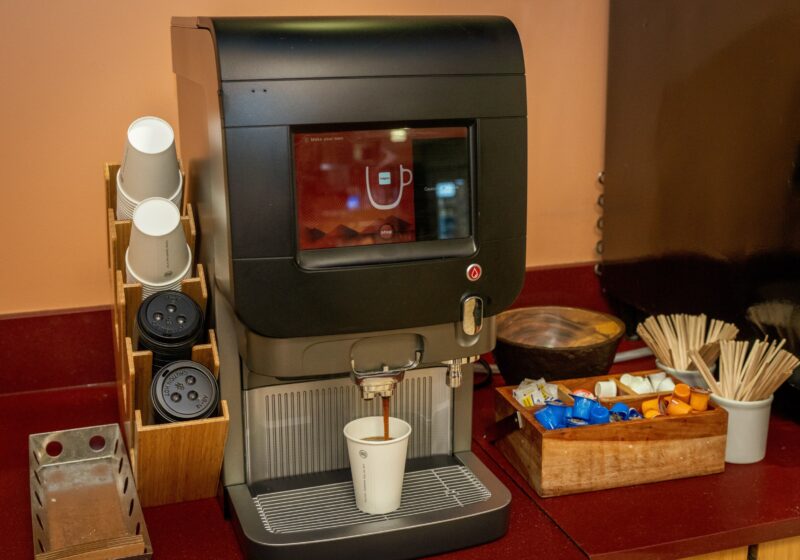The university has proposed major changes to its alcohol policy, putting restrictions on kegs at parties, defining standard punishments for offenses and reducing the number of drinks each person is allowed.
The change aims to clarify the current vagueness of the alcohol policy, Associate Dean of Students Ken Rockensies said.
?There is no move or proposal to go dry at the university,? he said.
Students voiced their concerns to the Alcohol Policy Committee Wednesday night at the Interfaith Chapel.
Clauses that prohibit kegs without ?special approval? and limit drinks to four per person ? down from the previous limit of five ? particularly generated student discontent.
However, junior and committee member Doug Schneider said administrators had made many concessions since the beginning of the negotiations. Originally, they had wanted to ban kegs altogether.
?This is a huge leap compared to where it was originally,? Schneider said. ?They invited students to come in and this is keeping [the alcohol policy] the same. We?re a pretty liberal campus.?
Although the old alcohol policy prohibited hard liquor at parties, there was no specification concerning kegs.
Currently, nine out the 12 fraternities on campus are already prohibited from having kegs by their national chapters.
Alpha Delta Phi and Delta Kappa Epsilon are insured and allowed to have kegs by their national chapters. The other campus fraternity that may have kegs is Chi Phi, whose national chapter requires the fraternity to comply with the specific university policy.
These three fraternities will be allowed to have kegs at registered events as long as they follow the ?special approval? process.
The process has not been finalized, which has angered some fraternity presidents.
Fraternities that are not allowed to have kegs must specify the BYOB clause for parties or have a third, outside vendor provide for them.
A third party vendor would take some of the legal responsibility and liability thus provide some protection for the group throwing the event.
?It is difficult to regulate BYOB,? said Paul Burgo, president of Alpha Delta Phi fraternity. Fraternity presidents were concerned about the consequences and accountability issues of having outsiders bring alcohol into their parties or about serving them after they arrive inebriated.
The subcommittee researched the alcohol policies at the eight other schools in the University Athletic Association. Five of out the eight schools do not permit kegs. Three of the benchmarked schools, including University of Chicago and Case Western Reserve University, do not have a policy on kegs, but they do have restrictive party registration policies.
The decision to lower the drinks per person to four came after looking at study done at Harvard University that said that five drinks marked the level of binge drinking. Students at the meeting brought up the fact that this was simply a survey and not the clinical definition of binge drinking.
?We?re committed to a low-risk use of alcohol,? Rockensies said in response to the student claim.
There will be greater emphasis placed on individual accountability where students will responsible for their drinking. The new policy also clearly spells out the possible consequences of getting caught.
For example, the punishment for the first offense will be six months of probation and completion of an alcohol education program with related fees.
?The disciplinary process holds a person accountable and reienforces their dignity, it is honoring the law and respecting the academic environment,? Rockensies said. He added that a clear policy would lead to clear enforcement.
Security representative on the subcommittee Ed Schiedel said that like always, the primary concern for security would be any underage drinking or disruption. ?Security checks will be the same, they are done when we have reason to believe something is going on,? he said.
Changes to the alcohol policy began five years ago, when the decision was made to prohibit hard liquor at parties.
Most of the students at the forum were affiliated with Greek organizations or SA government.
The policy will be further clarified this summer, especially the ?special approval? clause for permission to have alcohol, said Linda Dudman, associate director of health education and chair of the alcohol steering committee. Students will be consulted throughout the process.
The committee?s Dandelion Day subcommittee just presented a list of the general D-Day services and regulations that would be in place this weekend. The services include the availability water, pizza and bagels at various times of the day. The regulations placed by security on the campus grounds including a spot check of bags if there is reasonable suspicion.
?It is not going to be any different than last year,? Cooper said. ?We?re just trying to give students notice, just to emphasize to be safe and make the day safer.?





